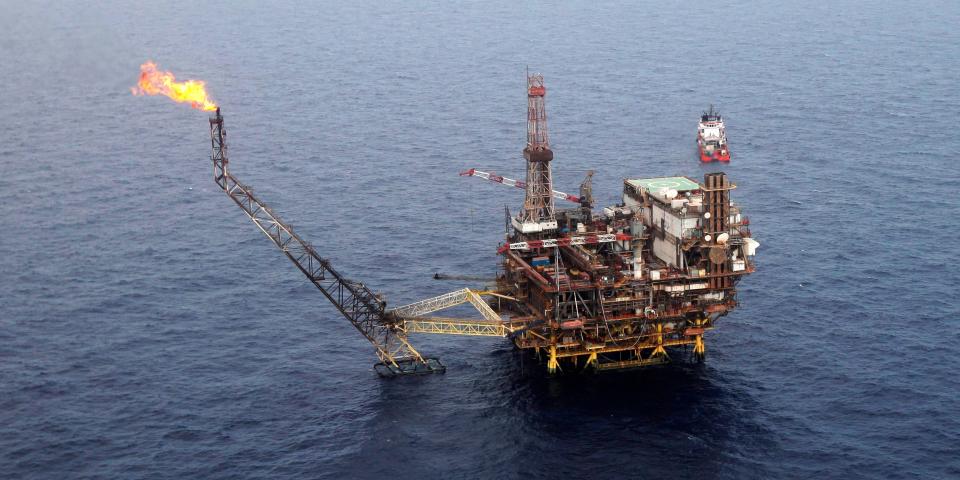Oil prices are crashing. Blame uncertain demand and booming US production.

US and Brent crude oil prices plummeted on Wednesday to $69 and $74 a barrel, respectively.
US crude exports are nearing a record 6 million barrels a day, pushing global supply higher.
Earlier this week OPEC+ announced deeper production cuts in an effort to stabilize markets.
Ballooning global supply and an uncertain demand outlook is pulling oil prices lower, with US and global crude plunging to multi-month lows on Wednesday.
West Texas Intermediate plunged 4.12% to $69.37 a barrel, and Brent crude, the international benchmark, moved lower 3.68% to $74.39 a barrel.
The latest drop comes as federal data shows US gasoline inventories rising compared to a week prior, leading to futher questions about oil demand. At the same time, market are digesting a surge in US oil production, which notched all-time records in September and October.
The boom in US output has led some commentators to warn that OPEC+, particularly Saudi Arabia, could "flush" the market to counter America's shale oil boom. Flooding the market with oil would have the effect of crashing the price in order to push small suppliers out of the market.
Wednesday's drops add to a series of recent declines, moves which the Organization of Petroleum Exporting Countries has attempted to combat with announcements of production cuts led by Saudi Arabia. The country's energy minister, Prince Abdulaziz bin Salam, told Bloomberg earlier this week that lower supply could stay on the table past March.
Energy firm Kpler forecasts that Saudi Arabia will keep its one million barrel-a-day cuts through the duration of next year, but traders have doubted OPEC+ member states' commitment to the voluntary cuts, which has contributed to the recent string of declines.
"While you have OPEC+ cutting production, you have a variety of countries that are increasing production outside the group, and also inside too actually," Matt Smith, Kpler lead oil analyst for the Americas, told Business Insider. "The US has increased, Canada, Guyana, Brazil. And ironically, you have Venezuela and Iran within OPEC increasing. Basically you have OPEC+ making room for non-OPEC supply, while the demand picture starts to soften."
In the US, meanwhile, signs of softening economic conditions also point to waning activity in the world's largest economy. Gas prices have dropped to 11-month lows of $3.22 a barrel, per AAA, and the lower-than-expected reading on the ADP payroll data released Wednesday point to a cooling demand narrative.
"The oil market is increasingly sensitive to indications and suggestions that the economic landscape continues to ease," Quincy Krosby, chief global strategist for LPL Financial said. "Weaker crude prices are reflective of a softening economy."
Softening demand can also be seen in China, which is dealing with a deepening economic malaise that's weighing on all sectors of its economy. Moody's on Tuesday downgraded its outlook on China's sovereign debt and pessimism over Beijing's ability to steer the country out of its real estate tumult, declining foreign investment, and sluggish economic activity present another headwind for crude prices.
"The four-day losing streak in oil is incentivizing high-level discussions among political leaders in the East, with the Kremlin head planning to visit the heads of Dubai and Riyadh today," according to José Torres, senior economist at Interactive Brokers. "The officials appear willing to curtail production further."
Read the original article on Business Insider

 Yahoo Finance
Yahoo Finance 